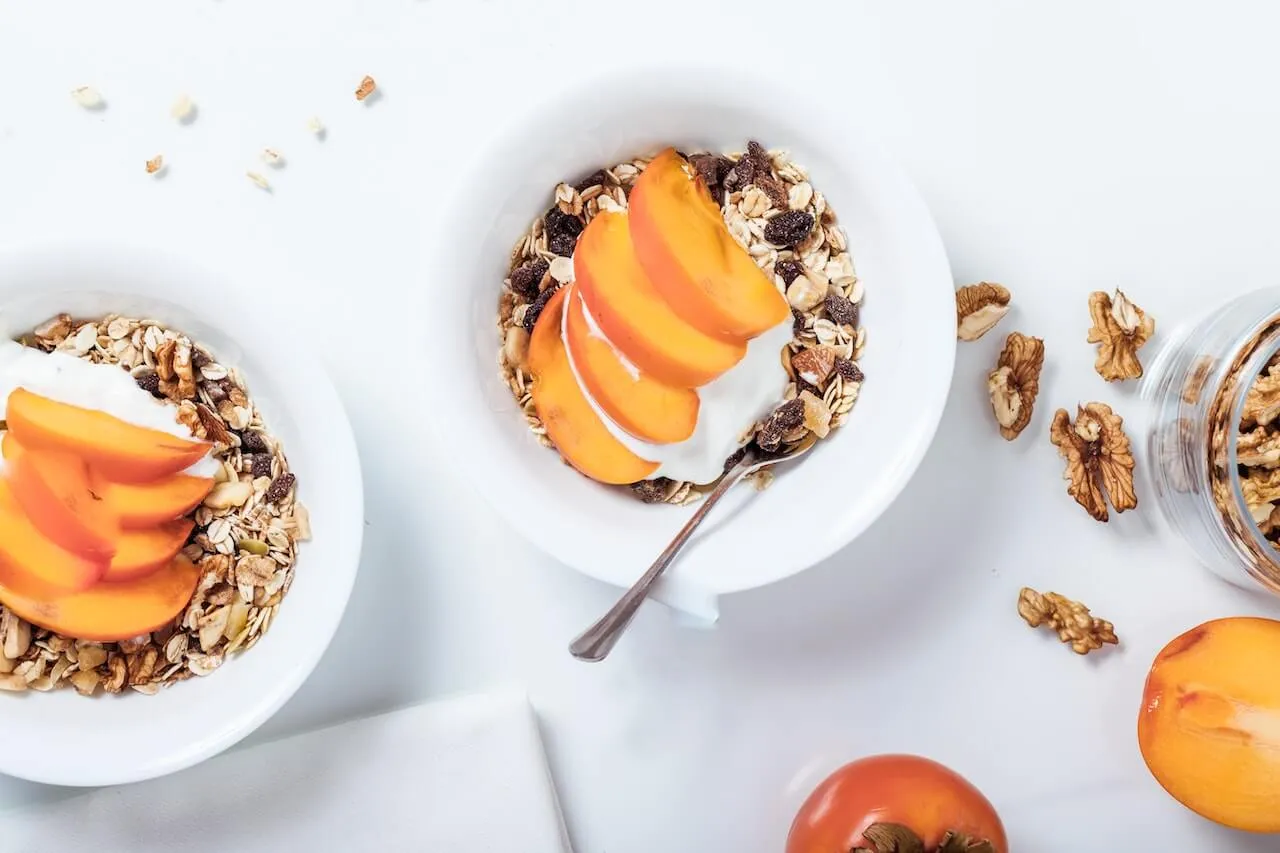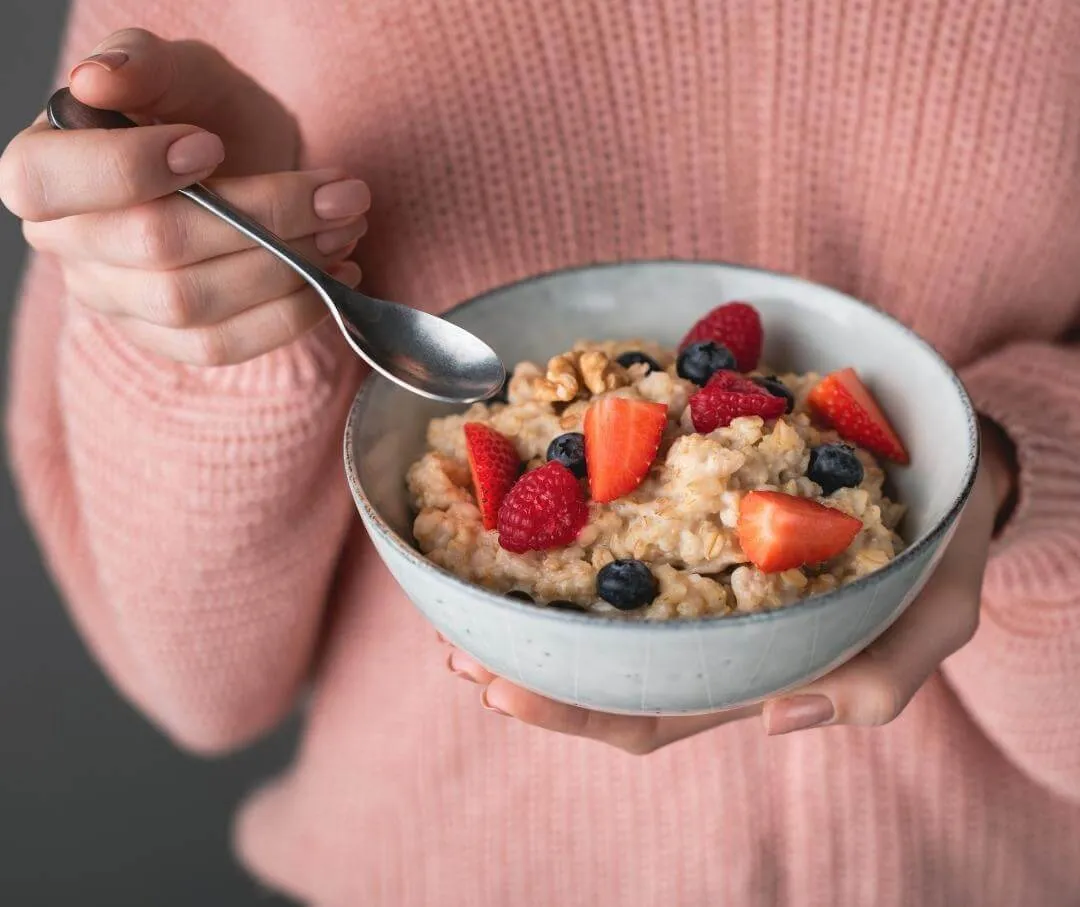Gooey scrambled eggs paired with a thick piece of toast to soak up all that eggy goodness sounds like a perfect weekend indulgence. Throw in some cheese and peppers and now, it’s a decadent meal reserved for Sunday brunch only, right?
Maybe not! There are lots of ways you can make eggs a regular part of your healthy diet.
Let’s take a look at some of the most current research on eggs, what the different labels mean, and whether one type of egg is best for metabolic health. We’ll end with a delicious breakfast sandwich recipe that will get your morning off to a good start.
Why Eggs Are a Good Choice for Metabolic Health
One measurable risk factor for heart disease is cholesterol level. It used to be that health professionals advised everyone to reduce or limit the amount of foods high in cholesterol to help maintain a healthy cholesterol level. Eggs were always top of the list.
We’ve since learned many more nuances of heart disease and the types of foods that raise the risk of developing it. It turns out that eggs are not the number one issue. As a matter of fact, they really aren’t much of an issue at all.
Let’s back up and talk about cholesterol.
How Cholesterol Works in Your Body
Cholesterol comes from two places - from our diet and from our own bodies. Our liver makes cholesterol. We need a certain amount of cholesterol in order to manufacture hormones like estrogen, testosterone, and certain nutrients like vitamin D. But when we have too much cholesterol the excess gets deposited in our arteries, leading to plaque buildup.
In years past it was widely thought that decreasing the amount of foods high in cholesterol would help control cholesterol levels and reduce the risk of heart disease. We’ve since learned there is more to it than that. So much more that both the Dietary Guidelines for Americans and the American Heart Association have recently adjusted their guidance saying there is no reason to limit cholesterol consumption.1, 2
<p class="pro-tip"><strong>Learn more about </strong> <a href="/blog/lower-blood-sugar-cholesterol">lowering cholesterol and blood sugar</a>.</p>
Where Excess Cholesterol Comes From
Foods that are high in fat, especially saturated fat, are much more of an issue than cholesterol. Consuming too much saturated fat raises your LDL cholesterol level and increases your risk of heart disease. A high-fat diet also increases your risk of being overweight, developing high blood pressure, type 2 diabetes and other metabolic issues.

How Eggs Affect Cholesterol Levels
As it turns out, eggs are a nutrient-rich food and help support heart health. Eggs contain:
- Vitamin A
- Lutein (a nutrient that supports eye health)
- Zeaxanthin (an antioxidant)
- Folate (vitamin B9)
- Choline
Choline is a nutrient required for brain health and development and muscle function. Eggs are also low in saturated fat and contain a very high-quality animal protein.
<p class="pro-tip"><strong>Learn about </strong> <a href="/blog/why-eggs-weight-loss">why eggs are helpful for weight loss</a>.</p>
A recent study in the Journal of the American Heart Association looked at data from the National Health and Nutrition Examination Survey from 1999 - 2014. They found no association between egg consumption or dietary cholesterol intake and heart disease or death.3
How Many Eggs to Eat Per Day
According to the Dietary Guidelines for Americans and the American Heart Association, healthy individuals can eat up to 1 egg a day.1,2Within these guidelines, they also recommend eating a healthy diet that follows the principles of the Mediterranean Diet or the DASH diet.
<p class="pro-tip"><strong>Learn about </strong> <a href="/blog/dash-diet-weight-loss">the DASH diet</a>.</p>
{{mid-cta}}
Types of Eggs
There are a variety of eggs available in most supermarkets, and the question always is: what’s the difference, and which one is best for metabolic health? Here’s a quick rundown of the most common types of eggs.
Conventional “White” Eggs
White eggs are laid by chickens with white feathers and white earlobes (the skin just below the ear). Conventional eggs are laid by hens that are kept in an enclosure where they can nest, but are not allowed to roam freely.
Brown Eggs
Contrary to popular belief, brown eggs are nutritionally the same as white eggs. The difference is brown eggs are laid by chickens with brown or red feathers and brown/red earlobes. That’s it! Yes, you might pay more for brown eggs, but the nutrition is exactly the same.
Cage-Free Eggs
Cage-free eggs are laid by hens that are kept in a room or pen but are allowed to roam freely within that area, which contains nesting spaces for all the hens in the pen.
Free-Range Eggs
Free-range hens are kept in an enclosure that has access (an opening) to the outdoors and are in theory allowed to roam freely. The outdoor space may be small and fenced in.
Certified Organic Eggs
Eggs that are certified organic are from free-range or cage-free chickens. The chicken’s feed is grown without synthetic pesticides, fungicides, herbicides, or fertilizers. 100% of the feed must be certified organic.
A study conducted by Penn State University found that certified organic eggs had much higher levels of vitamin A, vitamin E, and omega-3 fatty acids, compared to conventionally produced eggs.4

Benefits of Eating Eggs for Breakfast
Besides being a great source of protein and filled with nutrients, eggs are versatile and make an excellent carrier for other foods.
Eggs combine easily with vegetables and even seafood for a nutrient-rich meal. Additionally, some recent research has shown that eating an egg with vegetables may help your body absorb more of the antioxidants from those foods.5
Because eggs are rich in protein and fat (mostly unsaturated), they can help you feel full longer. Pairing eggs with whole grains, fruits and vegetables will also help keep your blood sugar stable.
<p class="pro-tip"><strong>Learn about </strong> <a href="/blog/achieve-stable-blood-sugar-levels-with-these-everyday-foods">more foods that stabilize blood sugar</a>.</p>
Spinach Egg Omelet Breakfast Sandwich Recipe

Serves 1
Ingredients:
Cooking spray
¼ cup chopped onions
2 large eggs
¼ cup chopped baby spinach
1 tbsp. crumbled feta cheese
¼ tsp. ground black pepper
¼ tsp. dried basil
1 whole grain English muffin
Fresh spinach leaves and sliced tomato (optional)
Directions:
- Spay a small non-stick skillet with cooking spray, or lightly coat with grapeseed oil. Add chopped onions and cook over medium heat until just starting to brown. Remove onions from the skillet.
- In a small bowl, whisk the eggs until bubbles start to form on the side of the bowl. (This will ensure a fluffy omelet.) Stir in the chopped spinach, onions, and cheese. Add the pepper and basil and combine well.
- Place the skillet back over medium heat and add a little more cooking oil or spray if necessary. When the skillet is hot, add the egg mixture and cook on one side until lightly browned. Flip the egg mixture over partially (fold it in half) and continue cooking until cooked through.
- Meanwhile, toast the English muffin on both sides.
- When the omelet is cooked through, place a few spinach leaves on the bottom of the English muffin, and top it with the omelet and tomato slices if desired.
Nutrition Information: (not including extra spinach and tomato)
Calories: 340, Total Fat: 15g, Saturated Fat: 5g, Monounsaturated Fat: 4.5g, Polyunsaturated Fat: 3.5g Cholesterol: 380mg, Sodium: 410mg, Carbohydrates: 33g, Dietary Fiber: 4g, Total Sugars: 5g, Protein: 19g, Vitamin D, 2mcg, Calcium: 235mg, Iron: 4mg, Potassium: 285mg
<p class="pro-tip"><strong>Find more </strong> <a href="/blog-category/recipes">healthy recipes that stabilize blood sugar</a>.</p>
Topics discussed in this article:
References
- Dietary Guidelines for Americans, 2020-2025, 9th Edition. U.S. Department of Agriculture and U.S. Department of Health and Human Services. Retrieved August 2, 2022, from: https://www.dietaryguidelines.gov/
- Carson, J.A.S., Lichtenstein, A.H., Anderson, C.A.M., Appel, L.J., Kris-Etherton, P.M., Meyer, K.A., Petersen, K., Polonsky, T., Van Horn, L. et al. (2019). Dietary Cholesterol and Cardiovascular Risk: A Science Advisory From the American Heart Association. Circulation, 141(3), 39-53. https://doi.org/10.1161/CIR.0000000000000743
- Xia, P. F., Pan, X. F., Chen, C., Wang, Y., Ye, Y., & Pan, A. (2020). Dietary Intakes of Eggs and Cholesterol in Relation to All-Cause and Heart Disease Mortality: A Prospective Cohort Study. Journal of the American Heart Association, 9(10), e015743. https://doi.org/10.1161/JAHA.119.015743
- Karsten, H. D., Patterson, P. H., Stout, R., & Crews, G. (2010). Vitamins A, e and fatty acid composition of the eggs of caged hens and pastured hens. Renewable Agriculture and Food Systems, 25(1), 45-54. https://doi.org/10.1017/S1742170509990214
- Kim, J. E., Gordon, S. L., Ferruzzi, M. G., & Campbell, W. W. (2015). Effects of egg consumption on carotenoid absorption from co-consumed, raw vegetables. The American journal of clinical nutrition, 102(1), 75–83. https://doi.org/10.3945/ajcn.115.111062



.webp)
.svg)










.svg)
.svg)
.svg)
.svg)
.svg)
.svg)
.svg)
